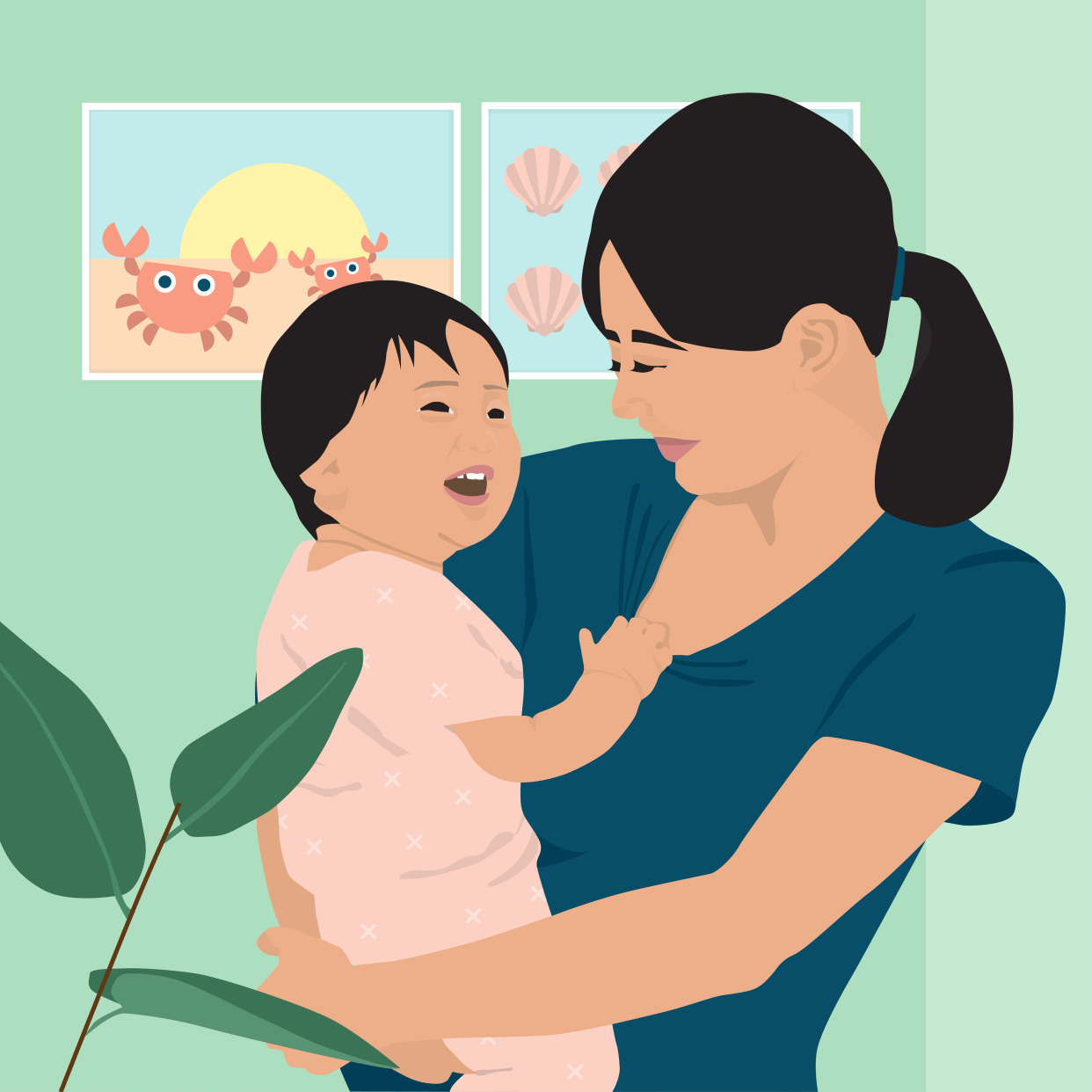When Your Baby Pulls, Tugs, and Pinches

Emma Darvick
At 4 months old, Ashley Wall, of Redwood City, CA, developed a little habit: She'd pull her mother's hair, and pinch her neck and chest, whenever she was held. Initially, the tiny tugs were kind of sweet, says Ashley's mom, Heather, but once the pinches and pulls grew stronger, they didn't seem cute anymore: "Every time Ashley was in my arms, she'd just go at it. I looked like I had little hickeys all over my neck and chest – and it hurt," says Wall.
Roving Hands and Mouth
It's not uncommon for babies to poke, pinch, or bite the adults they love, says Tiffany Field, Ph.D., a psychologist, and director of the Touch Research Institute at Nova Southeastern University, in Fort Lauderdale, FL. They're busy exploring the world around them – and that includes finding out what skin tastes like, how hair feels when you pull it, and how a person reacts when she's prodded. And since babies need repetition to learn a lesson, they're likely to do it over and over again. "They aren't being hostile," says Field, "they just don't realize that those things can actually hurt you."
RELATED: 12 Milestones You Shouldn't Overlook
Some infants also yank hair, tug ears, and otherwise occupy their hands when they're breast- or bottle-feeding. If those behaviors become a habit, babies may associate their actions with the pleasure of filling their tummies, and repeat them throughout the day as a way to comfort themselves.
Taming the Tugs
To rein in a baby's unwanted pinches and pokes:
Put on the brakes. With kids younger than 1, simply and gently stop the offending behavior. If your baby pinches you, remove her hand. If she's biting you, place two fingers in her mouth, separate her jaws, and pull her away. At the same time, say firmly, "No. That hurts Mommy."
Don't overreact. An older baby might think it's funny if you jump or flinch, and will do it again to get another rise out of you.
Offer an alternative. Show her a gentler way to touch someone. If she tugs your hair, take her hand and demonstrate how to softly stroke it.
RELATED: 8 Ways to Be a Better Parent
Eliminate temptation. Wall found it helpful to keep her hair back and wear a collared shirt – things that made it more difficult for Ashley to reach her target.
Set an example. Handle your baby gently, since squeezing her adorable cheeks may not be so comfy either, and may send the message that it's fine to do so.

